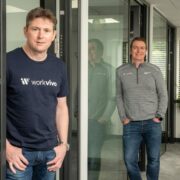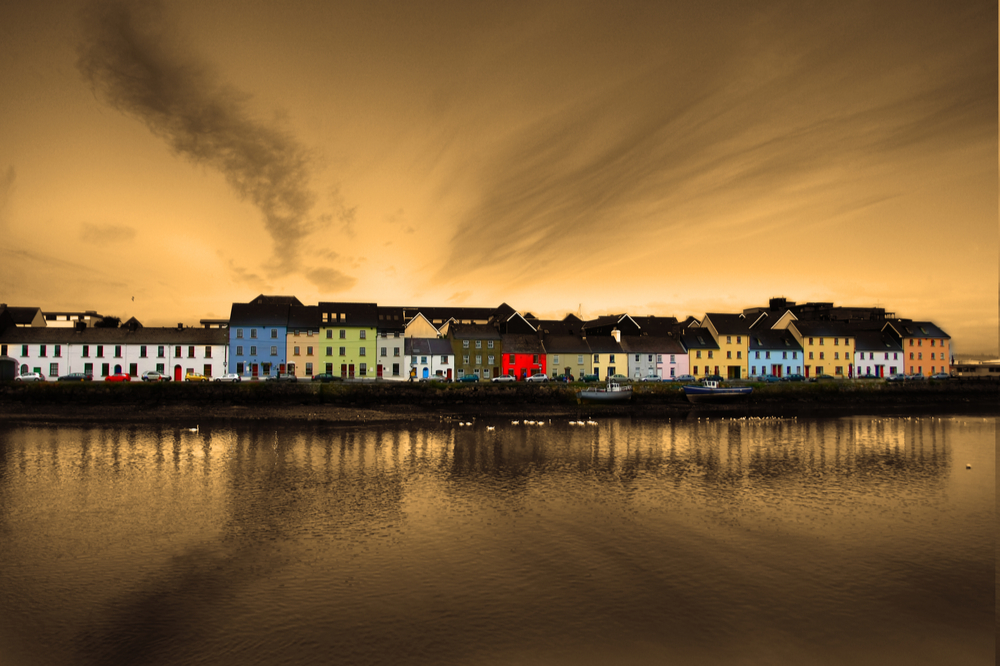Podcast Ep: 163: John Randles, CEO of Galway cybersecurity business Siren, talks about how a business that began life as a PhD research project at NUI Galway has blossomed into a business that recently reported 162% revenue growth.
Siren, which specialises in cyber intelligence and works with law enforcement agencies all over the world, recently raised €12m in backing from the European Investment Back to fight cybercrime.
In the latest ThinkBusiness Podcast, CEO John Randles talks about his career at the helm of indigenous Irish tech firms and why he believes the sector’s best days lie ahead.
“Identify the projects, match university funding with venture funding and then you will have people like myself come along to help commercialise them and grow them into companies along the way”
Siren’s funding comes off the back of a strong year for the business, which reported a 162% increase in revenues, achieved its first patent with four more pending and opened a new headquarters in the Galway Innovation District.
The business was also listed in the Deloitte Technology Fast 50 listing of Ireland’s fastest-growing tech firms.
The power of digital forensics
So what does Siren do? Well, the Galway tech firm allows investigators to make complex searches, organise the results visually and create advanced reports to share findings with their teams. The platform is also used by large corporations to protect their assets and networks against fraud and cyber threats.
The Galway firm has partnered with US based non-profit organisations like the Anti-Human Trafficking Intelligence Initiative (ATII) and the National Child Protection Task Force (NCPTF) who use its patented technology to solve complex intelligence problems, identify traffickers and reduce human trafficking.
Siren was founded in Galway in 2014 by Giovanni Tummarello and Renaud Delbru as a spinout from Data Intensive Infrastructure, a Big Data research group at NUI Galway.
Randles joined the company as CEO in 2017 after having played a leading role in the success of a number of other well-known indigenous Irish success stories, including banking software player Eontec which was acquired by Siebel and market data player Polarlake which was acquired by Bloomberg.
You could say Randles had an interesting grounding in data quality and growing a tech business in adverse circumstances. After the sale of Eontec he got involved in a young and growing data quality business called Polarlake which focused initially on financial services firms like banks. Everything was going smoothly until one fateful weekend in 2008.
“We were in London trying to close a deal with Lehman Brothers and I’d been in their offices in New York the previous week. We agreed to meet again on Monday morning and literally as I was walking in the door people were walking out the door with boxes in their hands.” The financial crisis that rocked the world had struck.
“We very quickly called a board meeting and it was said that we need to target customers in a different industry now that financial services is not the way to go. I said ‘Look, I think we need to hold our nerve here because you know after the crisis that’s when banks will really concentrate on data to know their exposure to risk.”
PolarLake stayed focused on financial services as banks and other players realised the power of good data. As a result the business was acquired by Bloomberg and still operates a presence in Dublin. “Before the crisis it was all about sales and trading bonds, commodities, futures, options, anything you could make money off. But we knew that the emphasis for the next 10 years was going to be about how you process data, the quality of the data infrastructure and not just blindly believing the reports that people gave you.”
Randles spent five years with PolarLake Bloomberg after the acquisition. He then decided he needed a new challenge. That challenge was Siren.
“I had heard of Siren and it was actually Atlantic Bridge, who were an early investor in PolarLake who asked me to take a look at them. I liked what I saw so much that I invested myself in the business and ended up taking the CEO role. What I really liked about it was that it was based on some great postdoctoral research from the DERI Institute at the University of Galway.”
That research came out of a pan-EU research initiative focused on the semantic web. The Irish element of that research focused on investigations into areas like cybersecurity, including threat investigations and threat hunting but also involving criminal investigations, counterterrorism and more.
“We took some great technology and ended up on a fantastic mission to keep people, assets and networks safe.
“Cyber is a big part of it, but also investigations bleed into the physical world and for us cyber is just another type of bad actor.”
From research to business opportunities
In just a few years Siren has amassed a global client base that includes national security agencies, law enforcement agencies and national infrastructure agencies, focused on identifying and investigating threats.
Randles believes the Irish innovation and research ecosystem of universities and SFI institutes could generate a rich vein of new business potential. “The more we do it, the more we get it right. There is a huge amount of work going on with Enterprise Ireland which has a great university fund and were one of the early investors in Siren.”
He believes businesses like Siren, born out of university research present a template from which other research projects could be turned into global businesses.
“Identify the projects, match university funding with venture funding and then you will have people like myself come along to help commercialise them and grow them into companies along the way.
“We’re now at 85 people, have gone through multiple rounds of funding and we’re scaling significantly.”
Randles believes that despite the various challenges facing the Irish tech and start-up ecosystem, the ecosystem to day is much more robust than it had been 20 years ago. Not only that but solid tech businesses are emerging all over the country, not just in big cities.
“The thing I really like about being a Galway-headquartered company is there is a great sense of community here. The Portershed has done a great job of bringing people together. People learn from each other, cheer for each other and there’s a great sense of vibrancy. People are less afraid to start things because they see their peers doing interesting things. And it builds a certain infrastructure around that in terms of who’s good at marketing, who’s good at design or channel management or photography and video.
“The other thing that Galways has going for it is that there is more ‘oxygen’ as I put it by being here. You’re competing less with multinationals if you’re recruiting for a smaller company. It makes a big difference. In a smaller company you are closer to the decision-making. If you work in a multinational you are often a long way away from the decision-making.
“That’s why it is very attractive when you are bringing in heads of marketing, heads of sales, a CFO, I am basically building out an executive team that will have a big influence on the future of the business and that’s a very important thing.”
So what’s next for Siren? As Randles positions the company to scale globally, he has a vision for the business.
“So, what we’re effectively trying to do is build the Bloomberg terminal for investigators. I spent five years ag Bloomberg and saw the power and reach of having data, news and analytics in one box. It cost so much every year and it had 320,000 users, connecting the entire financial market together.
“So effectively what we are doing with Siren is creating the biggest set of data vendor partnership in the world for investigators. For investigators, having access to data is the most important thing. We’ve got the search-based analytics, our core software, to make it a better experience to search and investigate that data.
“We’ve got people with real domain experience who are former crime investigators, former intelligence officers, who can really help people put that data together.”
When you include entities like the dark web, the cryptocurrency world and social media, suddenly what Siren offers has taken on a whole new level of importance, especially in terms of digital forensics.
“Bringing all of that data together in a coherent way is really our vision for what we’re going to do in the future. And we’re just going to grow the business based on that.”





